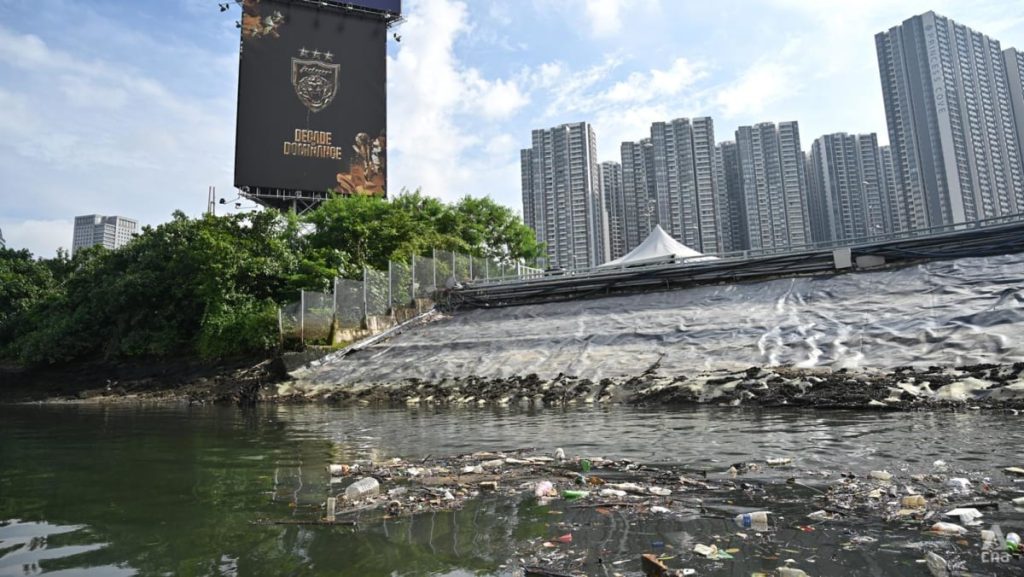The impact of pollutants and debris in the Johor Strait is a significant concern for both ecological and human health reasons. Dr. Serina, in an interview with CNA, emphasized the importance of maintaining water flow in order to prevent the accumulation of harmful substances. When pollutants are allowed to accumulate in the strait, they can have severe ecological consequences and affect aquaculture on both sides of the bridge. This can ultimately impact the quality of seafood in the area.
The issue of polluted water in the Johor Strait is not a new one, as studies from Universiti Teknologi Malaysia and Universiti Putra Malaysia have highlighted the presence of heavy metals and microplastics in the strait. Pollution in the tributaries leading to the Johor Strait has also been a concern for authorities. Former Prime Minister Lee Hsien Loong raised concerns about pollution and its impact on the long-term yield of the Johor River, which plays a crucial role in the 1962 Water Agreement between Singapore and Malaysia.
The 1962 Water Agreement allows Singapore to purchase 250 million gallons of water per day from the Johor River, at a rate of 3 Malaysian sen for every 1,000 gallons. The pollution in the Johor Strait not only affects the water quality but also has implications for water resources and agreements between Singapore and Malaysia. In 2021, Johor ruler Sultan Ibrahim Iskandar criticized residents for dumping waste into the drainage network, which includes rivers and ditches flowing into the Tebrau Strait.
The accumulation of pollutants in the Johor Strait poses a threat to the ecosystem and can have far-reaching consequences for both aquatic life and human health. Dr. Serina highlighted the importance of preventing pollutants from accumulating in the strait in order to mitigate the impact on marine life and aquaculture. The presence of heavy metals and microplastics in the water has been documented in studies conducted by Malaysian universities, underscoring the urgent need for action to address pollution in the strait.
Efforts to address pollution in the Johor Strait must involve collaboration between Singapore and Malaysia, as well as local authorities and residents. The long-term sustainability of the region’s water resources, as well as the health of the ecosystem, relies on effective management of pollutants and debris in the strait. By addressing the root causes of pollution and implementing sustainable practices, it is possible to mitigate the ecological, economic, and health implications of polluted water in the Johor Strait.













